In the global pursuit of sustainable urban development, Barcelona has emerged as a pioneering city, leading the way in fostering a sustainable and healthy food system. This pursuit exemplifies the power of collaborative efforts, innovative policies, and a commitment to transformative change. From international pacts to local initiatives, the city has demonstrated that urban areas can lead the way in building resilient, equitable, and sustainable food systems for the benefit of current and future generations. Barcelona’s commitment to sustainable food policies encompass the city’s initiatives such as the Food Charter of the Metropolitan Region, the Strategic Food Plan for Catalonia, and the Healthy and Sustainable Food Strategy 2030. These emphasise the strategic role of cities in developing sustainable, equitable, and inclusive food systems, and the significance of urban agriculture in promoting biodiversity conservation.
In the past, cities were considered marginal within the food system, mainly due to the widespread belief that food production was a rural issue. With the advent of industrialisation, the development of logistical infrastructures and globalisation, the historical link between town and country has gradually loosened. These changes have led to a lack of attention on food in urban policies, failing to consider it as a strategic element requiring specific policies and governance tools.
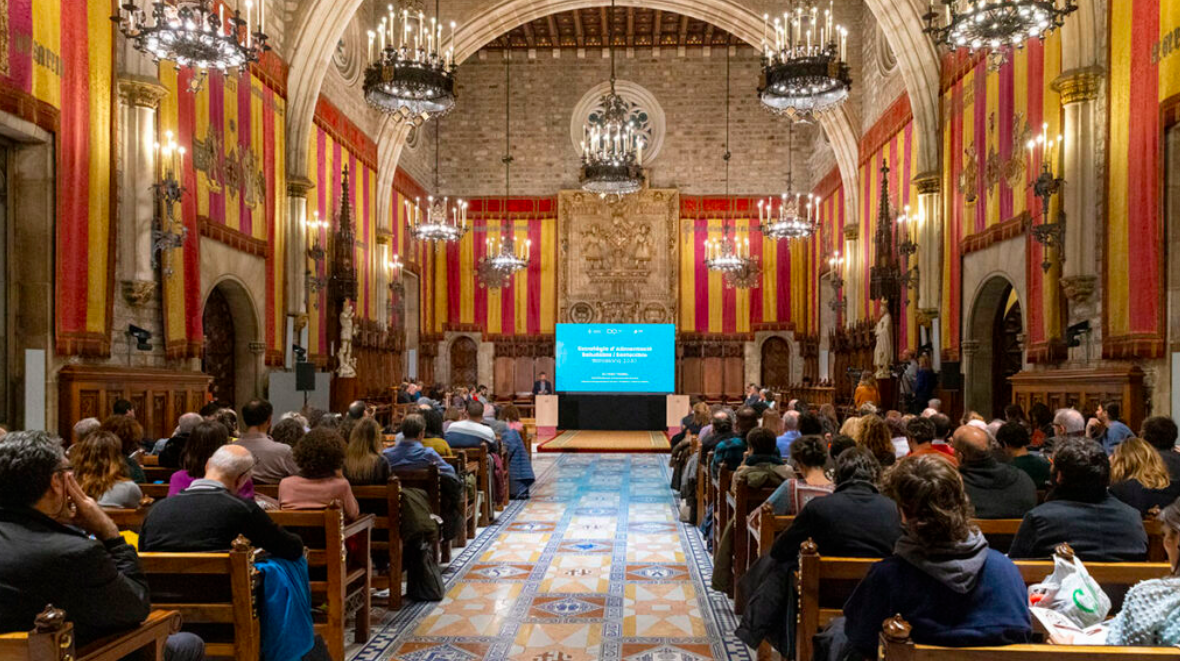
In recent decades, due to increasing urbanisation, the food supply of cities has received renewed attention, as currently, more than half of the world’s population lives in urban areas, with predictions that 80% of food will be consumed in cities.
Food policies aim to respond to the highlighted challenges by bringing together existing actors and initiatives in a broad strategy, involving various sectors and institutions addressing all dimensions of food, such as health, education, environment, culture, economy, social justice, planning, tourism, and so on.
Cities therefore play a strategic role in the development of food systems that are more sustainable, equitable, climate-friendly, resilient, inclusive and capable of providing healthy food at affordable prices to all. Likewise, these food systems can be a strategy for ensuring the sustainable development of cities and promoting more sustainable and inclusive urban environments.
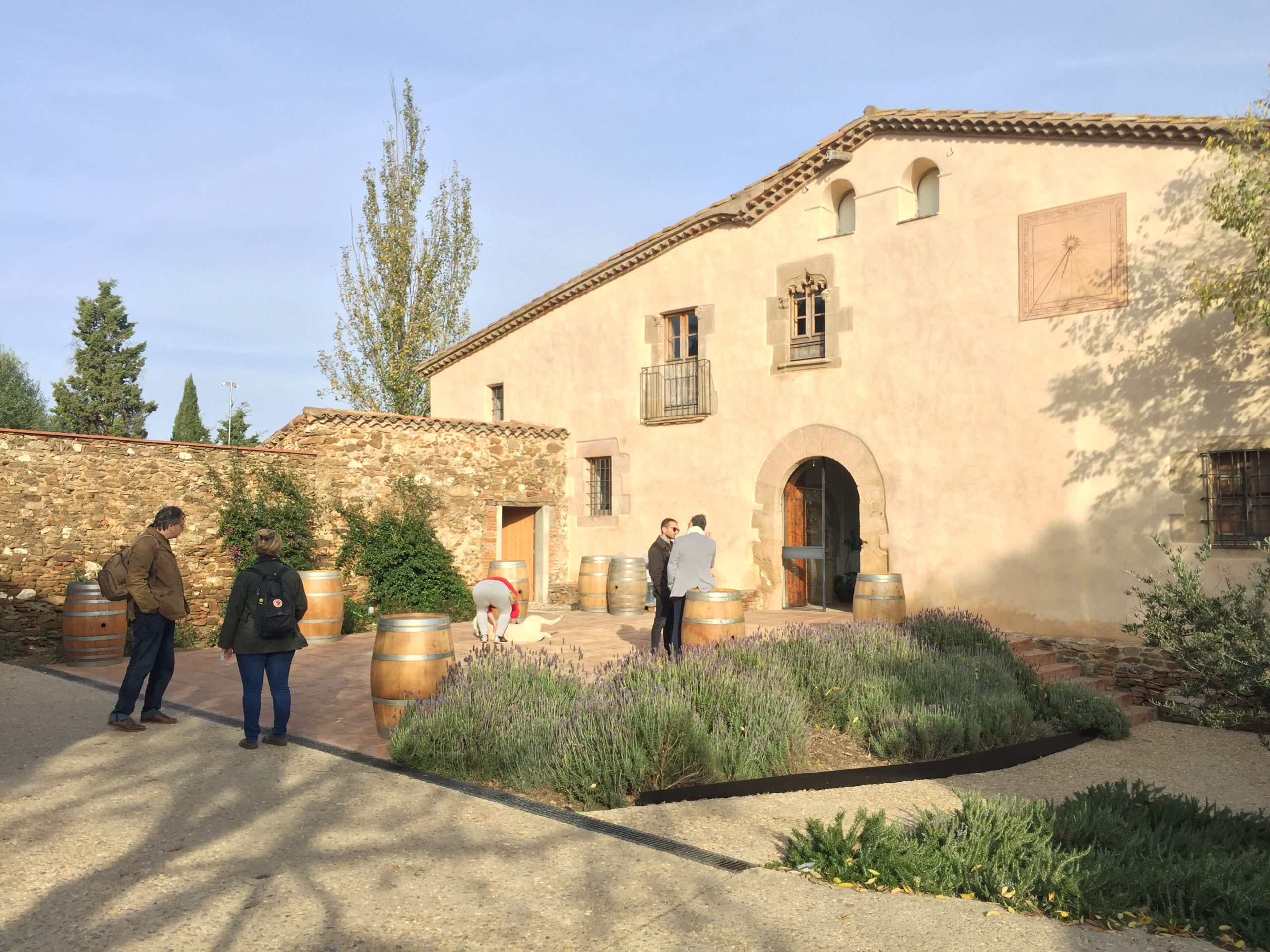
In this article, we delve into the transformative initiatives taken by the city of Barcelona in reshaping its food system, which is concurrently, a more significant economic drive and a factor of territorial cohesion.
Rediscovering the essence of food
“In a world where traditional food cultures still thrive, places like Alpine pastures, Brazilian jungle markets, Cairo’s souks, Italian olive groves, French vineyards, and Tokyo’s urban farms showcase the profound connection between food, spaces, landscapes, and communities. These locales reveal the transformative power of food in shaping our lives and providing them with enduring meaning. (From Sitopia by Carolyn Steel)
Revaluing food not only brings us closer to nature but also offers a counterbalance to the constant urban hustle. If post-industrial societies were to revere food anew, a rural renaissance would unfold. This shift would bring people and resources back to the countryside, revitalising essential services like post offices, schools, hospitals, shops, and transportation networks. Improved distribution networks, such as markets, warehouses, food centres, and slaughterhouses, would follow suit.
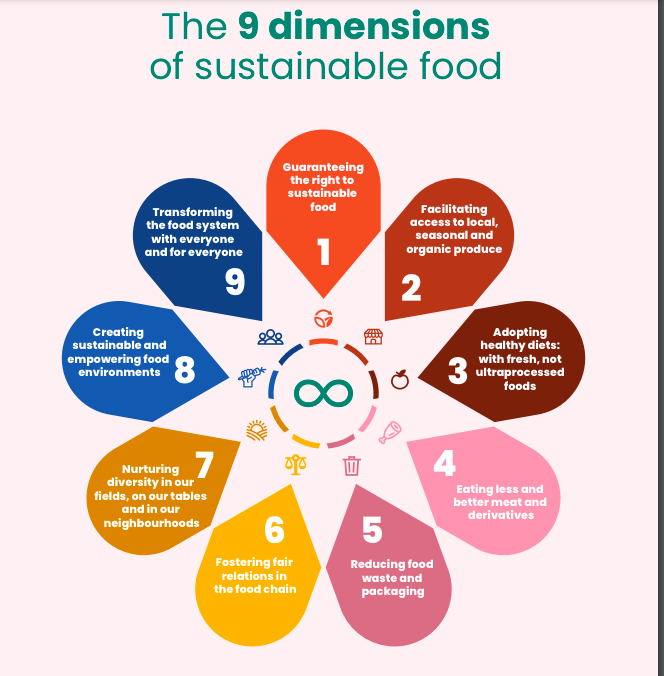
Even our cities would undergo a metamorphosis, with vibrant markets and main streets teeming with independent shops, restaurants, urban and community gardens, community kitchens and neighbourhood composting initiatives that could also enhance social cohesion, and above all relying on public food procurement. Public food procurement simply means the process by which public authorities purchase food and catering services from companies to prepare, cook, and serve meals in public canteens. This is a very important topic because it determines what thousands of people eat every day. Public food procurement is a strategic tool to promote health, environmental, socio-economic, animal welfare and other food policy objectives through peoples’ plates, especially among youth as schools are the places where they spend most of their time.
Valuing healthy and sustainable food enhances both urban and rural diversity and density, maximising the synergy between the urban and rural realms. Rural areas near cities would be better protected, suburbs strategically densified, and new compact urban hubs introduced, including innovative vertical farms. Is this vision too utopian? The evidence suggests otherwise; indeed, it’s already unfolding globally through the burgeoning food sustainability movements, ushering in social and ecological changes.
The resurgence of food on the agendas of architects and urban planners is important, a seemingly unusual but historically sensible development. Food planning – the integration of food into urban planning – is now one of the fastest-growing sectors in urban and regional design. City planners, together with local and regional authorities, in order to increase food security and nutrition are now being urged to play a key role in understanding how food is produced, processed, packaged, transported, marketed, consumed, disposed of, and recycled in urban areas.
Barcelona’s revolution: A blueprint for urban sustainability and health
In the global pursuit of sustainable urban development, Barcelona has positioned itself at the forefront of promoting a sustainable and health-conscious food system. The foundation for this transformative journey was laid in 2015, when Barcelona, along with 112 other municipalities, signed the Milan Urban Food Policy Pact (MUFPP), marking the first collaborative effort among mayors on urban food policies. Since then, the city has continued to build on its commitment, culminating in its recognition as the World Capital of Sustainable Food in 2021.
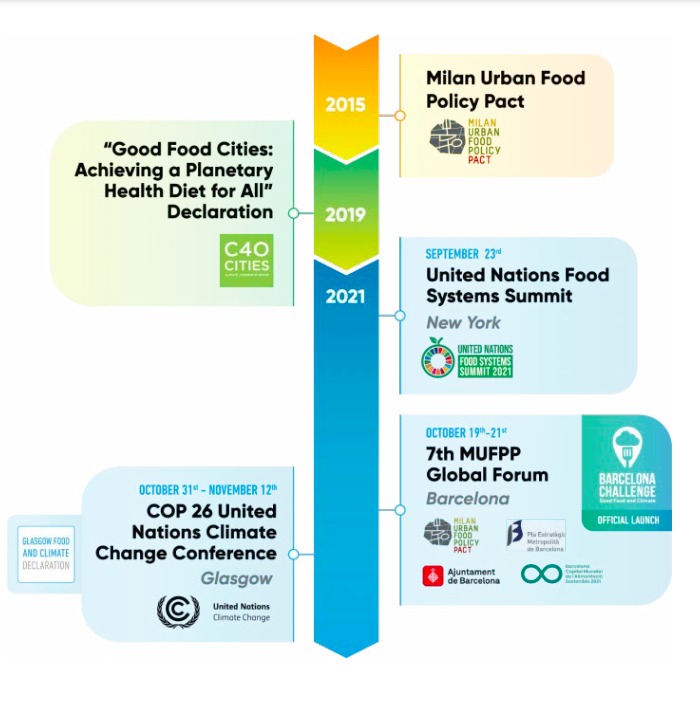
The primary objective of the MUFPP is to establish a network of cities dedicated to sustainable food policies, fostering the exchange of ideas and initiatives. Former Mayor Ada Colau emphasised Barcelona’s commitment to fighting food inequality and highlighted the significance of the city’s 39 covered markets as ecological spaces contributing to the local economy.
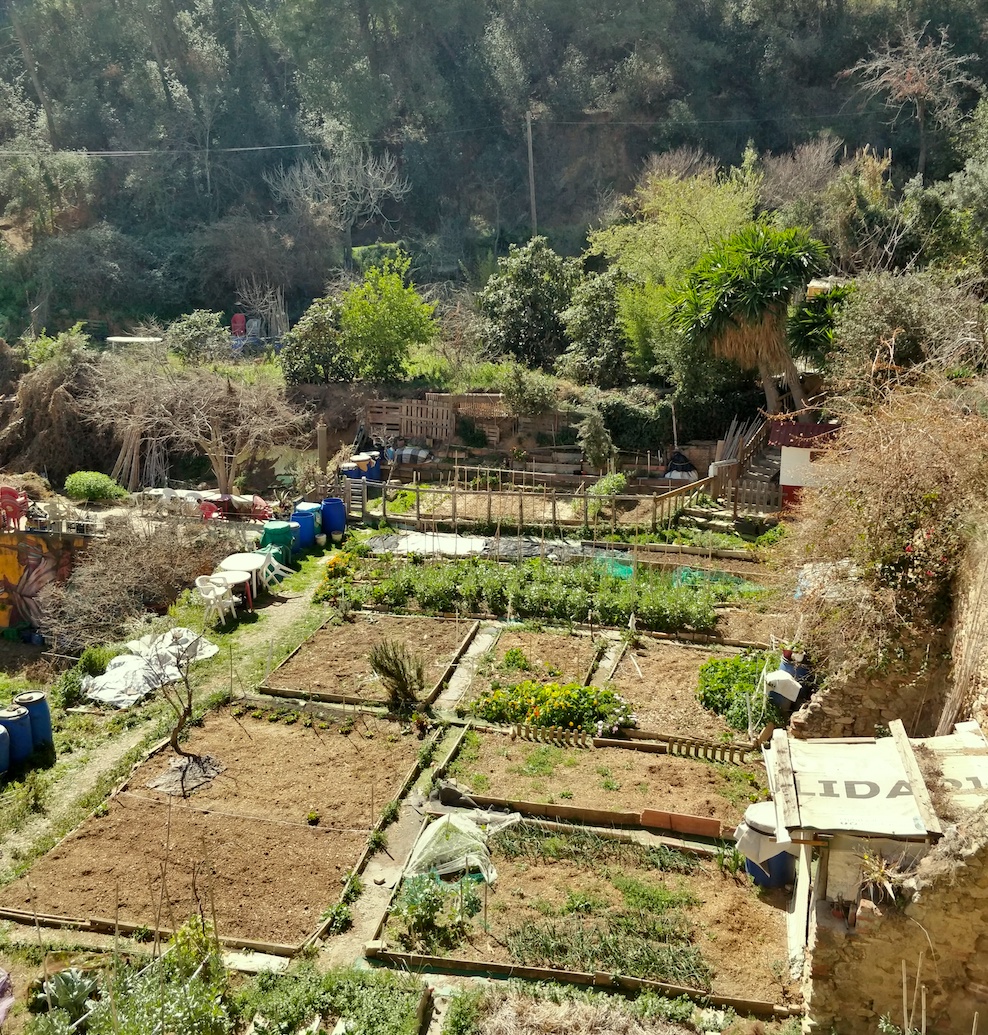
Following the city-region food system approach, Barcelona, in collaboration with the Barcelona Metropolitan Area (PEMB), formulated the Food Charter of the Metropolitan Region (CARM) in 2021. This charter aims to catalyse initiatives and projects that transform the food model, emphasising the universal right to food and advocating for practices benefiting people, territories, and the planet.
The acknowledgment of Barcelona as the World Capital of Sustainable Food in 2021 marked a significant milestone, activating over 90 projects and 200 activities focused on sustainable food. Pioneering initiatives, such as the Alimenta project and measures in public procurement and food advertising, played a crucial role in promoting the city’s transformation.

Building on the momentum, Catalonia formulated the Strategic Food Plan for Catalonia 2021-2026 (PEAC) in 2021. This inter-ministerial and intersectoral tool outlines the vision, objectives, and priority initiatives for the future of food in the region. PEAC focuses on sustainability, localisation, equity, and health within the dimensions of the food system.
The culmination of these efforts is reflected in Barcelona’s Healthy and Sustainable Food Strategy 2030. With nine strategic goals, 54 lines of action, and 265 initiatives, the city aims to create a more sustainable and fair food system. To ensure accountability, the City Agreement for EASSB2030 was established as a public-private cooperation platform.
In February 2023, Barcelona took a further step towards collaboration with the establishment of the Sustainable Food Joint Office. This office aims to align and coordinate policies across municipal, metropolitan, and national levels, leveraging the collective resources and knowledge of institutions to amplify the impact of sustainable food projects.
The Urban Agriculture Strategy, an integral part of the Barcelona Nature Plan 2030, envisions increasing agricultural surfaces in the city using an agroecological model. This initiative aims to engage citizens in the management of urban gardens, promoting agroecology, and contributing to biodiversity conservation.
Harmonising urban progress with our need for nature
Besides targeted policies and strategies, Barcelona’s remarkable journey towards transforming its food system is best demonstrated by citizen groups working with the municipality on specific initiatives showcasing the effectiveness of collaborative endeavours, innovative policies, and a commitment to transformative change.

A vivid example is the Hort Comunitari Plan I Armengol, where civic entities and the Municipality collaborated in 2014 to establish urban gardens on publicly owned land. Managed by the Association Promotora d’Horts Urban, this initiative has created an orchard with 33 plots, emphasising community, social and educational activities, and intergenerational inclusivity.
Another noteworthy project is Alimentem Collserola, actively working since 2016 to promote agroecological transition in Collserola park through a participatory process involving farmers, public administrations, and social movements. Visits to L’Olivera (you can read more here) and Can Masdeu further highlighted Collserola park’s vibrant peri-urban agriculture initiatives. L’Olivera managing vineyards at the Can Calopa farmhouse since 2010, combining quality produce with social inclusion and environmental respect; while Vall de Can Masdeu, once a leper hospital, has undergone a remarkable transformation into a self-managed social centre, alongside a community gardens project aiming to reclaim the valley as an agricultural and social space. Nestled at the foothill of Collserola mountain, Can Masdeu, spanning 35 hectares, is managed as commons, promoting environmental awareness and community participation, serving as a model for alternative urban living.
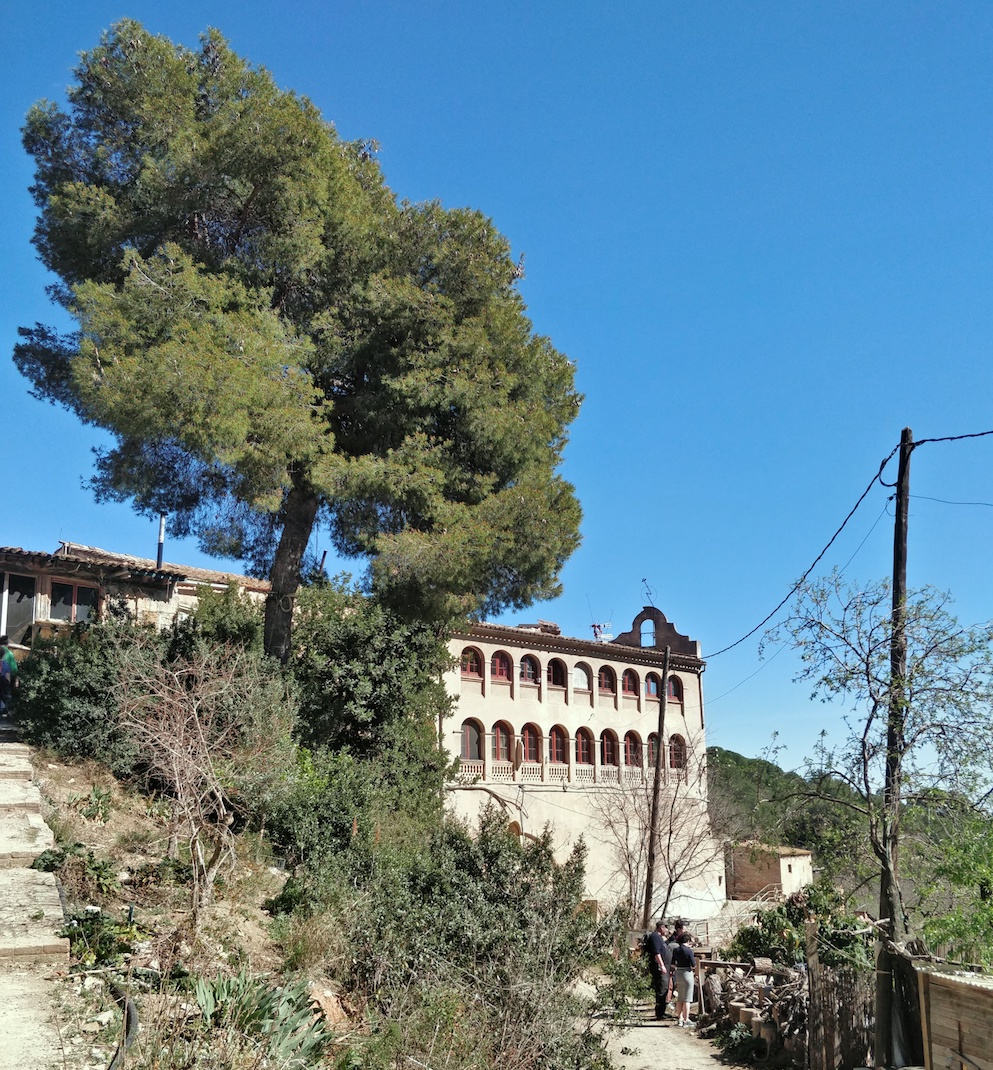
From international agreements to local initiatives, Barcelona’s achievements illustrate that urban areas can lead the way in developing resilient, equitable, and sustainable food systems for the well-being of current and future generations.
Conclusion
In envisioning the future of urban living, this article underscores the transformative potential of urbanisation as over half the global population is expected to reside in cities by 2050. While urban life brings connectivity and opportunities, it also poses challenges, overshadowing the benefits of rural living and a connection to nature. Recent research highlights the profound impact of nature on well-being, challenging the perception that urban life is inherently superior. Recognizing the interconnectedness of agriculture, health, environment, and consumers, the reconnection of our habits and environment to food becomes pivotal in shaping a sustainable, resilient, and universally accessible future.
This article highlights the strategic role of cities in transforming food systems, with a focus on sustainability, health, and equity. Specific policies and governance tools are crucial, involving various sectors to address dimensions such as education, environment, culture, economy, health, social justice, planning, and tourism. The narrative weaves through holistic strategies implemented in Barcelona and initiatives like Hort Comunitari Plan I Armengol, L’Olivera, and Can Masdeu, illustrating how collaborative efforts and innovative policies can shape a resilient, equitable, and sustainable urban food landscape.
Article written by Giovanni Pagano

